Are you looking to soar to new heights with a flight school recommendation letter? Crafting an effective and engaging letter can make all the difference in showcasing your skills and passion for aviation. In this article, we'll explore key elements to include that will not only highlight your qualifications but also resonate with flight school admissions committees. Ready to take your first step towards the skies? Let's dive in!
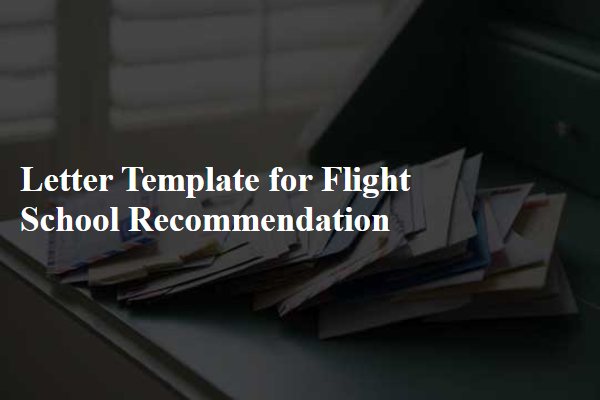
Personal relationship and connection to the applicant
A strong recommendation for a flight school applicant highlights personal relationships and connections. The applicant, John Smith, demonstrated remarkable dedication and passion for aviation during his training at Skyward Flight Academy in Los Angeles, California. I have known John for over three years, watching him consistently excel in both academics and practical flight simulations. His ability to quickly grasp complex aviation concepts, such as navigation and aerodynamics, sets him apart. Furthermore, John's leadership skills were evident during our group projects, where he effectively guided peers in flight planning and problem-solving scenarios. His commitment to safety and adherence to regulations reflects his readiness for the challenges of a professional flying career.
Applicant's passion and dedication to aviation
An applicant's unwavering passion for aviation is evident through their extensive commitment to flight training, encompassing over 150 flight hours on various aircraft types such as the Cessna 172 and Piper Cherokee. Their involvement in aviation-related extracurricular activities, including participation in local Civil Air Patrol missions and volunteering at regional airshows, showcases a deep understanding of the field. This dedication is further reflected in their academic pursuits, such as completing courses in aerodynamics and aviation safety at institutions like the Embry-Riddle Aeronautical University. Consistently demonstrating leadership skills, the applicant served as the president of the flight club at their high school, organizing events and workshops that engaged others in the fascinating world of aviation. Additionally, their resolve to obtain an instrument rating illustrates a forward-thinking approach, aligning with industry standards and regulations set by the Federal Aviation Administration (FAA). Overall, this applicant's drive, extensive knowledge, and proactive engagement in aviation mark them as an outstanding candidate for any flight school.
Relevant skills and experiences in aviation
Aviation enthusiasts possess unique skills and experiences that significantly enhance their ability to thrive in flight training programs. Proficiency in navigation techniques, including GPS and traditional map reading, allows aspiring pilots to understand flight paths and airspace regulations. Flight simulators, like Microsoft Flight Simulator or X-Plane, provide hands-on experience, helping students refine their piloting skills before actual flight. Participation in aviation-related extracurricular activities, such as membership in aeronautical clubs or volunteering at local airports, fosters a strong passion for flying and enhances practical knowledge. Furthermore, candidates often display exceptional teamwork and communication skills, essential for working effectively with flight instructors, air traffic controllers, and fellow students. These combined experiences create a solid foundation for success in flight school, cultivating well-rounded aviators ready to take to the skies.
Character traits and personal attributes
Aspiring aviators often display remarkable character traits and personal attributes that contribute to their success in flight training programs. Discipline is crucial, as students must adhere to strict schedules and protocols during lessons. Strong communication skills enable effective collaboration with instructors and peers, essential for safety and teamwork. Problem-solving abilities are vital, allowing students to navigate unexpected challenges during flight simulations or actual flying conditions. Resilience, demonstrated through persistence in overcoming obstacles, enhances overall learning experiences. Additionally, a keen sense of safety awareness drives a commitment to following aviation regulations and protocols, ensuring both personal and passenger safety. These attributes collectively create well-rounded individuals capable of thriving in demanding aviation environments.
The applicant's potential and future success in aviation
The applicant demonstrates exceptional potential for success in aviation, evidenced by their numerous achievements and strong dedication to learning. Their flight hours at local training facilities, amounting to over 150 logged hours, signify a serious commitment to expanding their knowledge and skills. Academic excellence is highlighted by a GPA of 3.8 in aviation studies at a reputable institution, showcasing their understanding of aerodynamics and navigation principles. Participation in various aviation-related extracurricular activities, including organizing a regional Young Eagles event that introduced over 50 children to flight, reflects their leadership capabilities and passion for the field. The applicant's aptitude for quick decision-making (critical in scenarios like adverse weather conditions) and their unwavering perseverance in overcoming challenges, such as completing cross-country flights during difficult weather conditions, further solidifies their future success in aviation.
Letter Template For Flight School Recommendation Samples
Letter template of recommendation for aspiring aviators to flight school
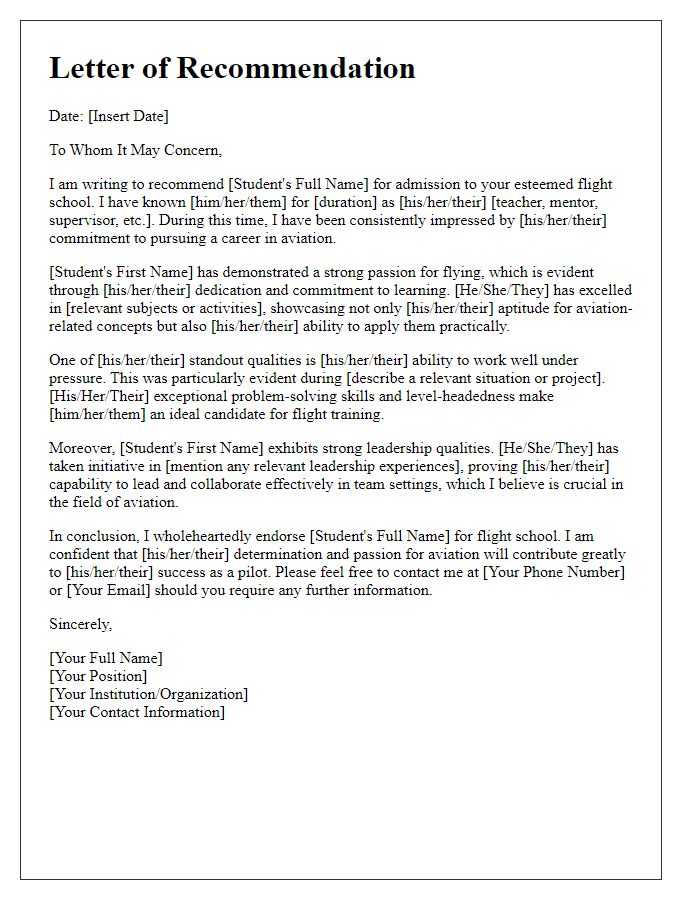

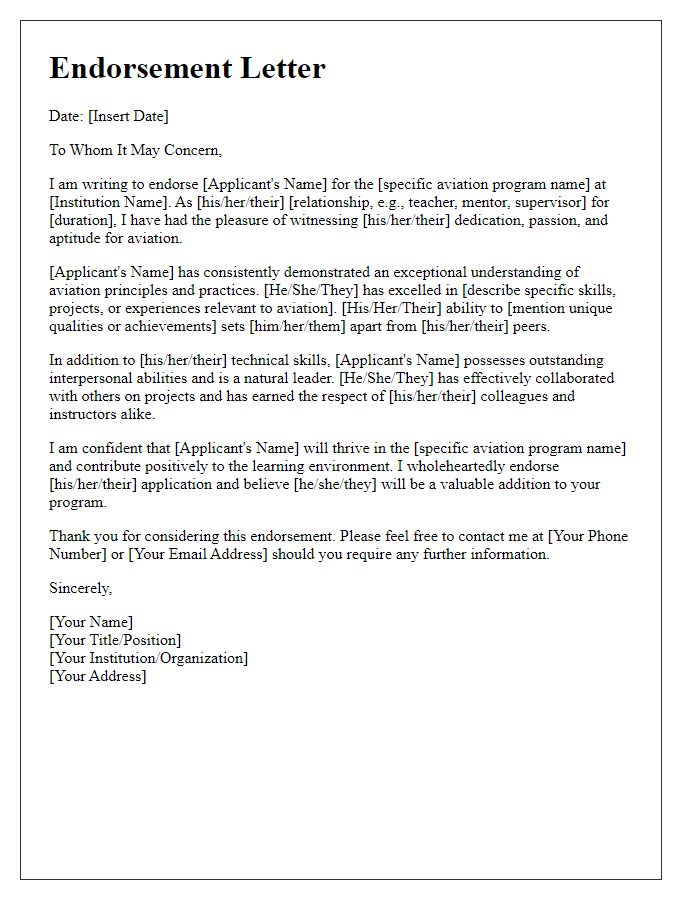
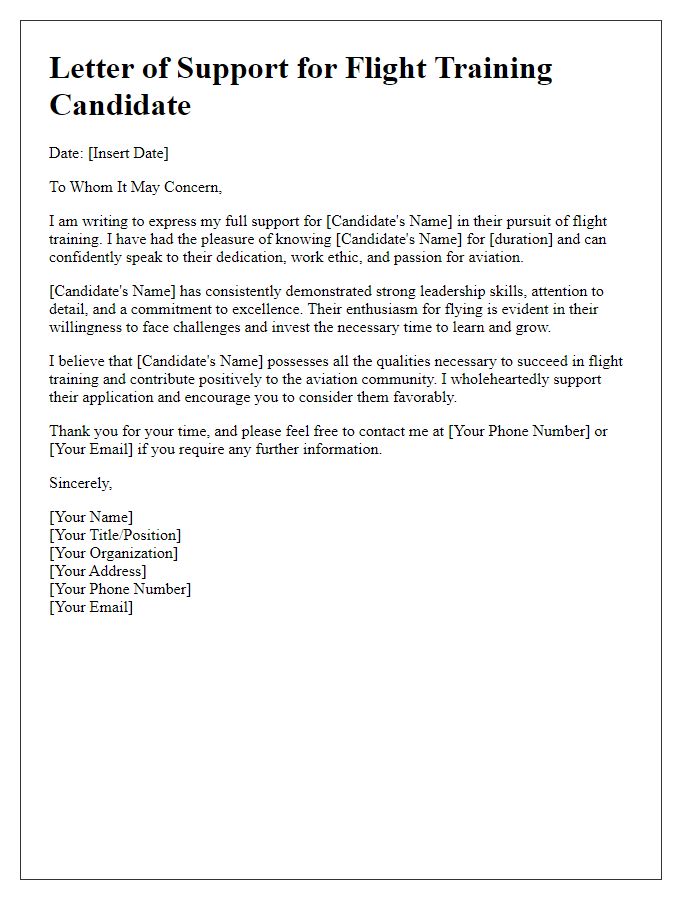
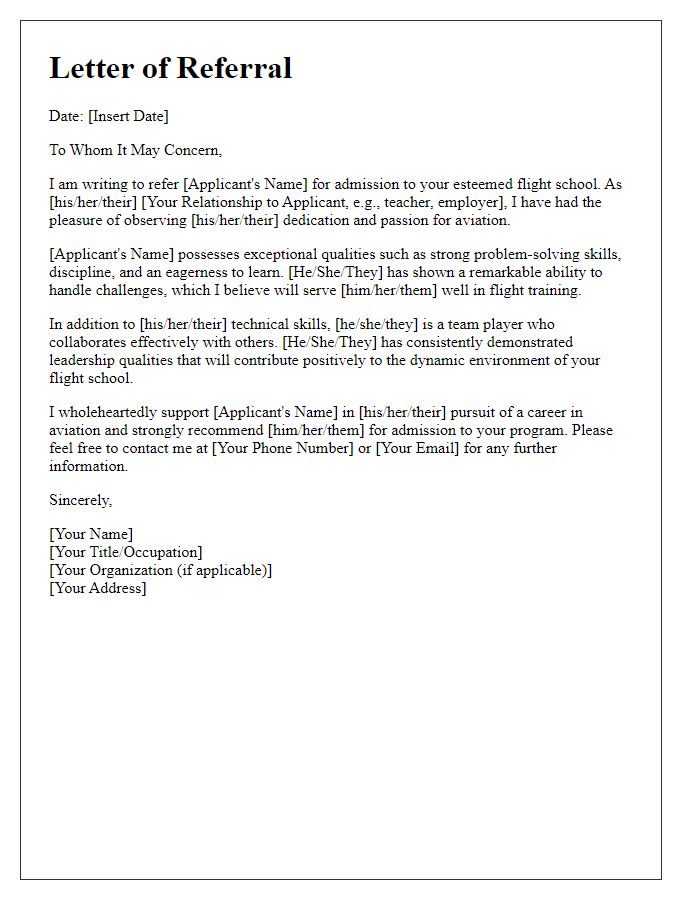
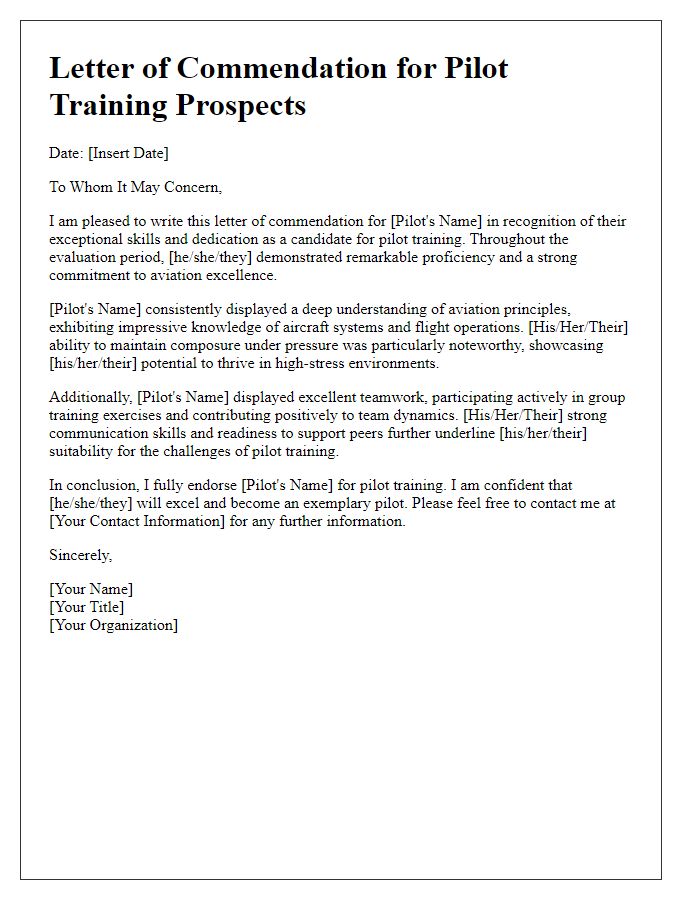
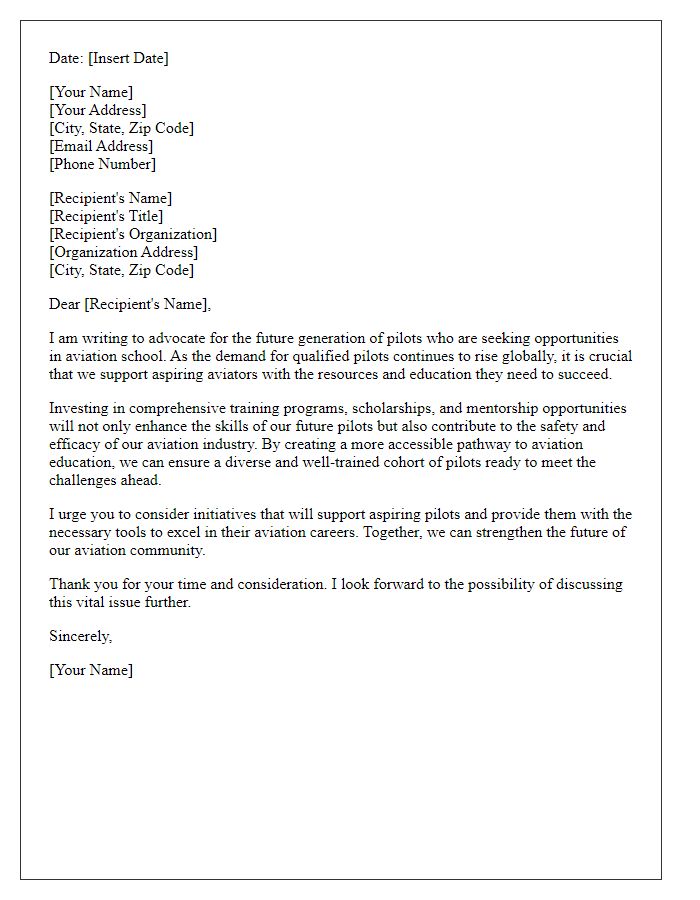
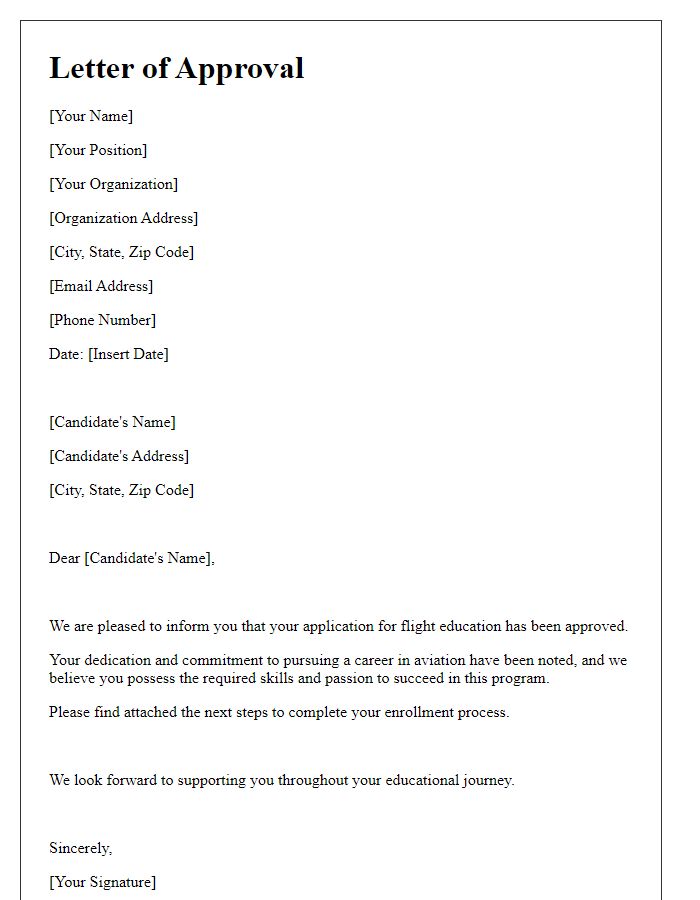
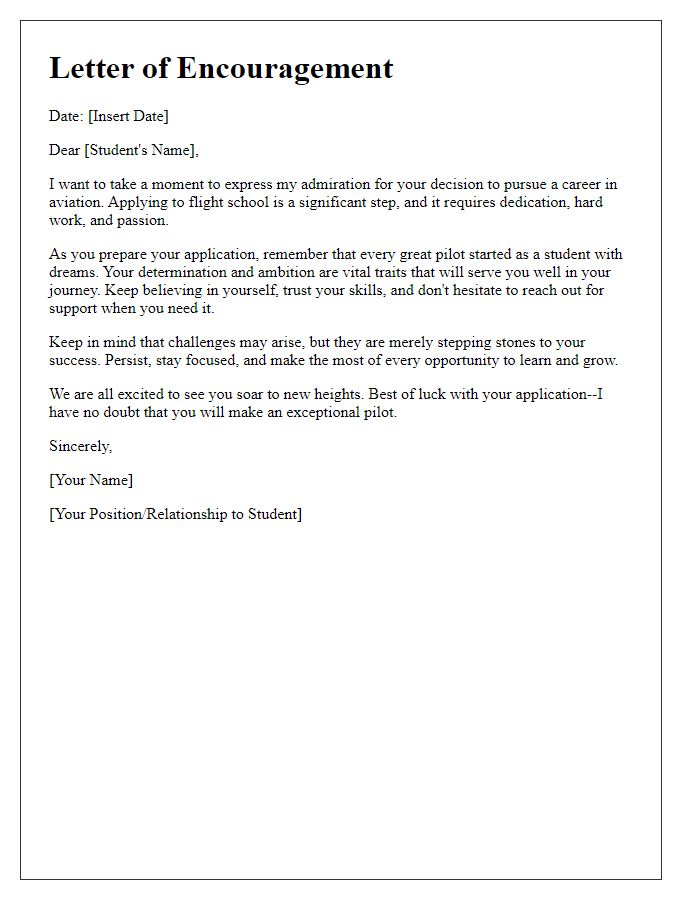
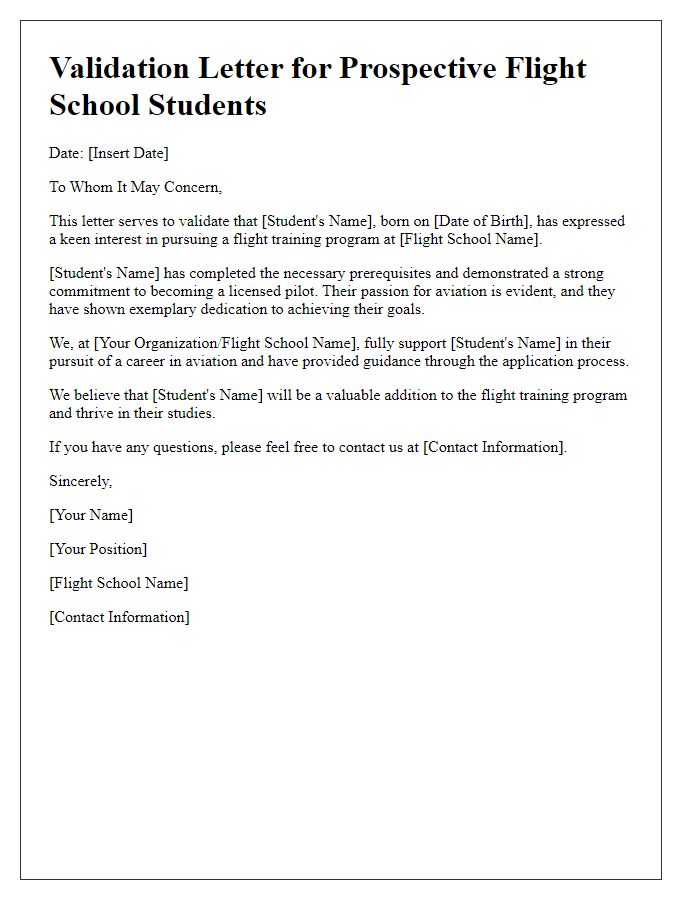
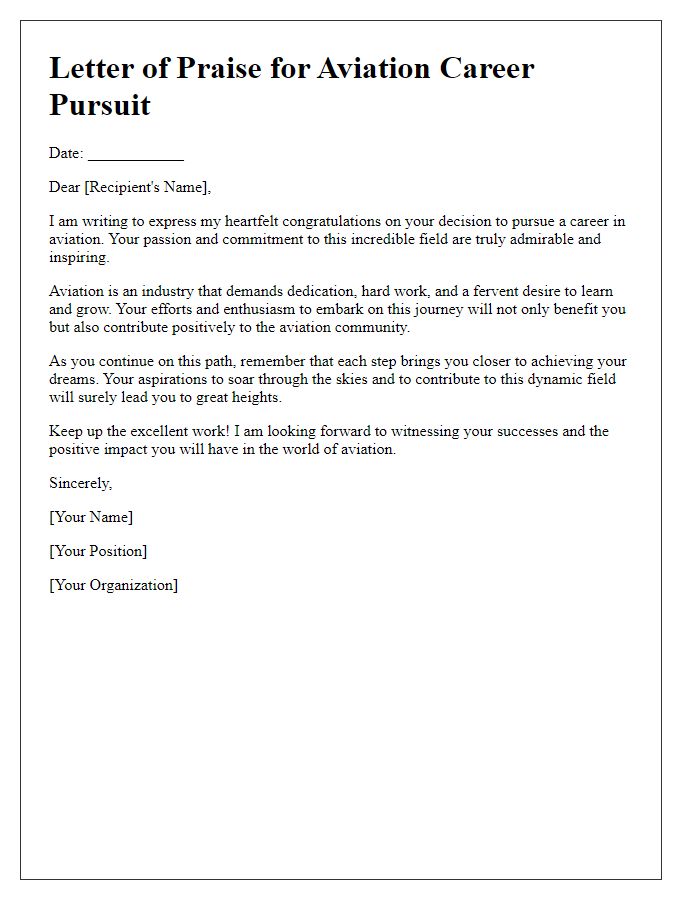


Comments